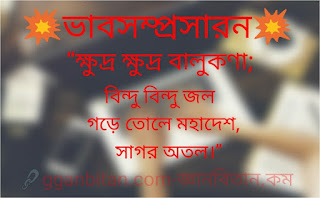A village market Composition for Class 6,7,8,9,10 and 12
Composition: A Village Market
A village market is a place where daily necessary things are bought and sold. It is known as 'haat'. It is useful buying and selling centre for the villagers. A village market sits in an open place of the village. It sits by the side of a road or on the bank of a river or a canal so that the villagers can come and go.
There are two kinds of village market the daily market and the weekly market. Daily market is called bazaar. It sits every morning. The weekly market is called haat. It sits in the afternoon once or twice a week and continues midday to the early part of the night.
A village market has three parts-open space, temporary shops and permanent shops. Vegetables, milk, fish, fruit, betel nut etc. are sold in the open space. This place is always crowded. People buy their daily necessaries here. The grocers sit in the temporary shops. From the grocers people can buy oil, salt, onion, garlic, ginger, pulse, etc.
In the permanent shops clothes, shoes, wheat, rice, flour, ghee, spices and different stationary items are sold. There are also sweetmeat sellers. They do not cover the sweetmeats properly. There are the tailors' shops and the tailors are busy in cutting and sewing. On haat days one or two cows and goats are slaughtered and people buy meat. People can also have fowls, hens, ducks etc. Cattle are sold in some big markets. There are also tea stalls and the shops of barbers.
A village market has demerits also. There is no fixed price for any of the items. A customer may be cheated at any time. A village market is not clean. There is no public sweeper to clean the rubbish and filth. Besides, sometimes higgling leads to quarrel. Sometimes, shopkeepers are also oppressed by the local mastans and criminals. In spite of the demerits a village market is very useful and important in the life of the villagers. Here they meet their kith and kin and variety of people. The villagers sell their surplus products and buy their daily necessaries. It saves time and money of the villagers.
Word-meaning: necessary; generally - ; temporary-g; permanent - স্থায়ী; crowd – ভিড়; grocer - মুদী; onion - পিঁয়াজ; garlic - রসুন; ginger - আদা pulse - ডাল, মটর, শিম ইত্যাদি; slaughtered – জবাই করা হয়; demerit - অসুবিধা: rubbish and filth - ময়লা-আবর্জনা;






